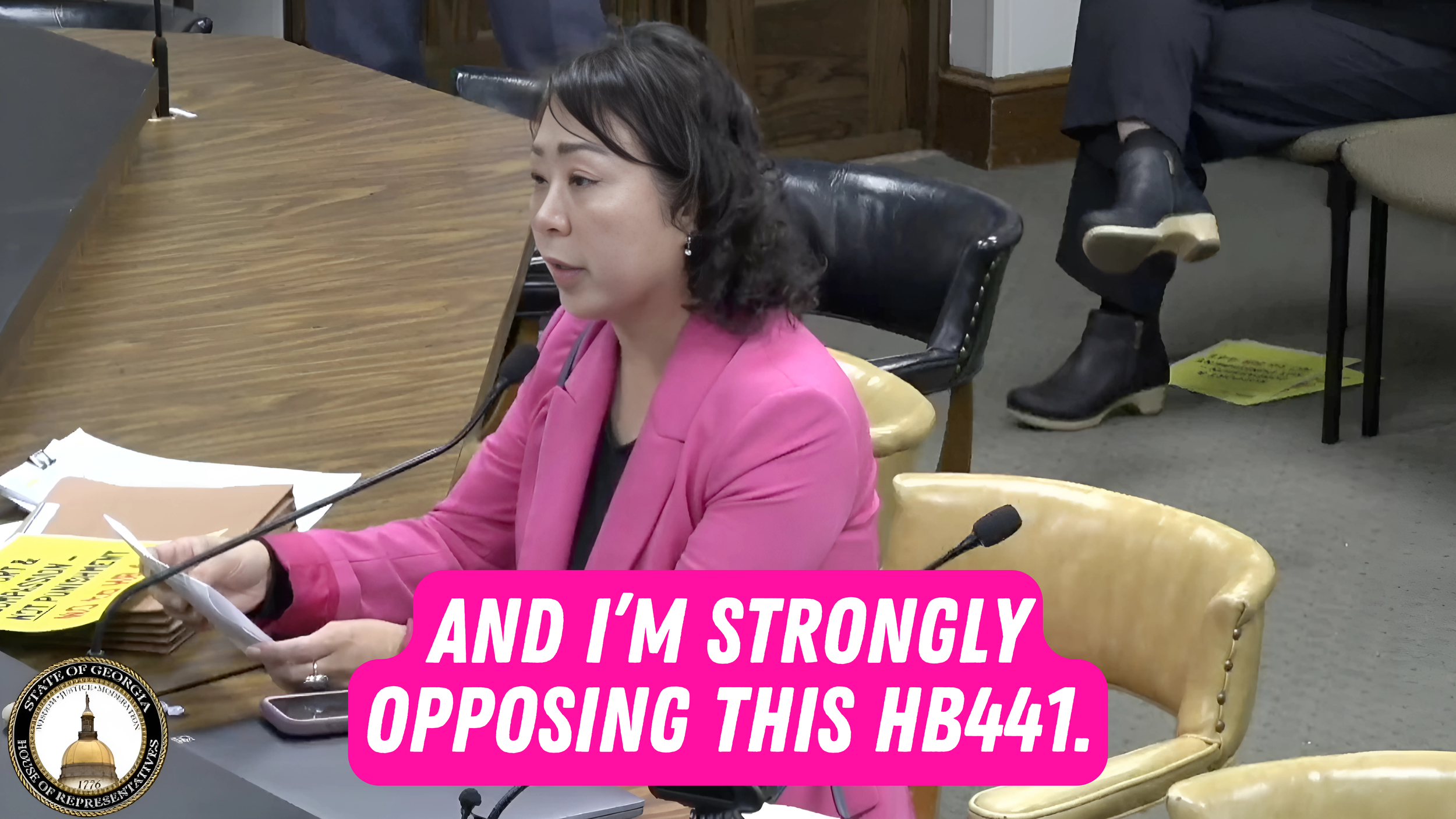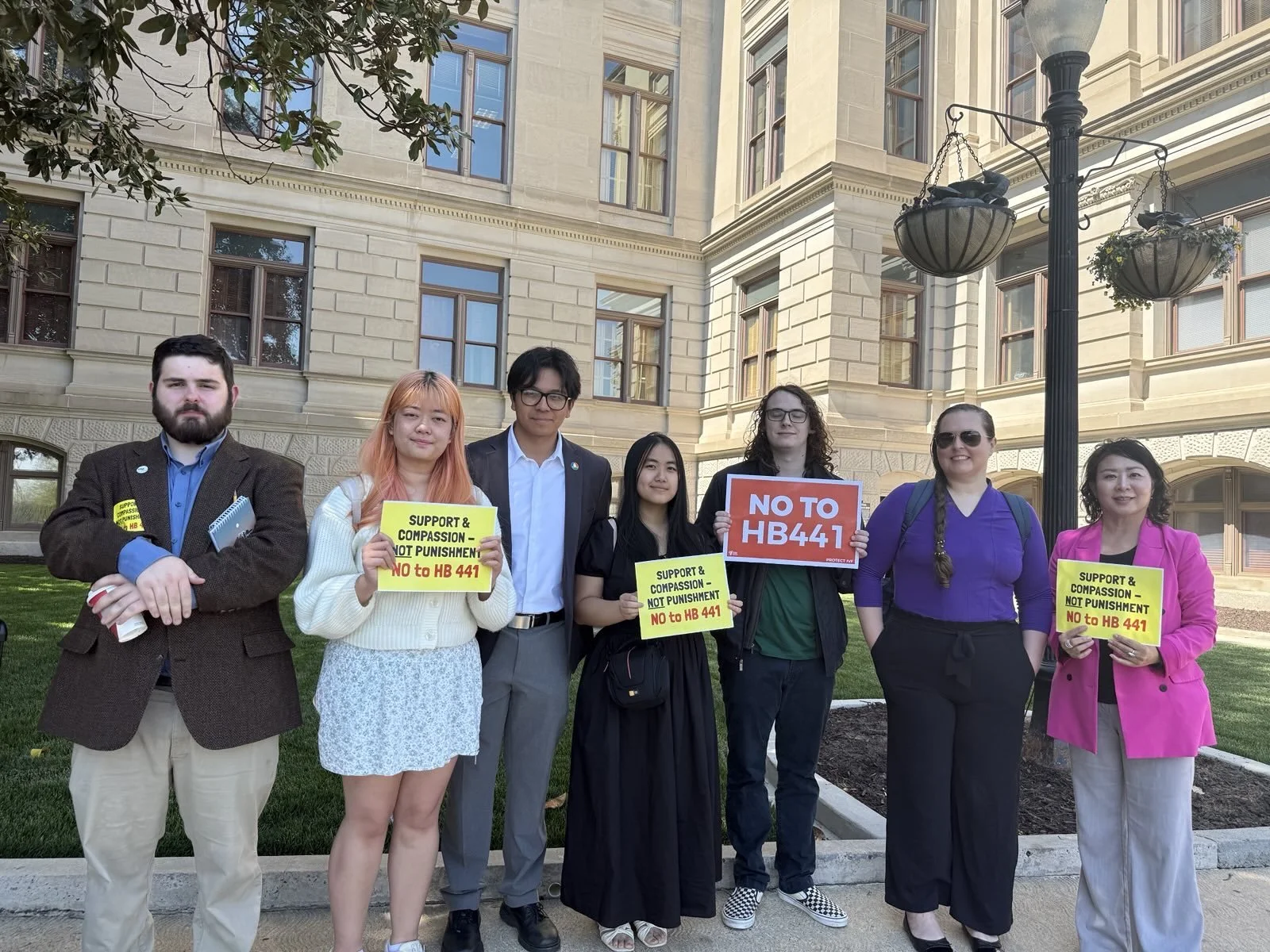Pregnancy Is Not a Crime: Why I Testified Against HB 441
On Wednesday, I had the privilege of testifying against House Bill 441 before the Georgia Legislature. This dangerous bill threatens the rights of pregnant people by criminalizing pregnancy outcomes, including miscarriages, stillbirths, and abortions. It’s not about protecting life—it’s about punishing individuals.
What is HB 441?
HB 441 seeks to grant full legal personhood to embryos and fetuses from the moment of fertilization. If passed, this bill would allow law enforcement to investigate all pregnancy outcomes, including miscarriages and stillbirths. In Georgia, where approximately 20% of pregnancies end in miscarriage or stillbirth, this means that one in five pregnant people could be treated like criminals after a pregnancy loss.
Despite claims from supporters that the bill doesn't target miscarriages, the medical procedures used to treat them often overlap with those used for abortions. This puts grieving people at risk of interrogation, investigation, or even arrest.
Why HB 441 is Dangerous
HB 441 doesn’t protect life—it punishes people. It disproportionately impacts low-income Georgians, people of color, and those already facing significant barriers to reproductive healthcare. It creates a culture of fear, where anyone experiencing a pregnancy loss could be treated like a criminal suspect during one of the most vulnerable moments of their life.
This bill doesn’t just target those seeking abortions—it also affects people who lose pregnancies naturally. This law fosters suspicion and trauma for those who are already grieving, turning their personal tragedy into a legal issue.
The Consequences of HB 441
HB 441 is part of a broader national trend. In states where similar laws have been enacted, we’ve seen:
People arrested after miscarriages or stillbirths.
Pregnant individuals jailed without trial to "protect" fetuses.
Doctors refusing to provide necessary care for fear of legal repercussions.
Patients being denied life-saving treatments for ectopic pregnancies or miscarriages because they might be seen as "facilitating abortion."
Who Does This Bill Harm the Most?
Georgia HB 441 will hurt:
Low-income people already struggling with access to healthcare and transportation.
People of color who face systemic discrimination in healthcare and the criminal justice system.
Rural communities where access to medical care is often limited and traveling long distances for care is a significant burden.
Wealthier individuals might afford private lawyers to defend themselves, but Black, brown, and poor people face harsher penalties and fewer legal protections.
It’s Bigger Than Georgia
While HB 441 is a major issue in Georgia, it’s part of a national strategy to criminalize abortion and restrict reproductive rights. Across the country, lawmakers are pushing bills declaring abortion to be murder, with no exceptions for rape, incest, or health reasons. These efforts are being rolled out state by state to overwhelm us and desensitize the public. We cannot let them succeed.
We Know Where This Leads
We’ve seen this trend before. In Georgia and other states with similar laws, people have been arrested or investigated after pregnancy losses. For example, a woman in Georgia was recently charged with "concealing the death of a fetus" after having a miscarriage, even though she was unconscious and bleeding. Tragically, this echoes similar cases from other states where people were arrested for having miscarriages. These incidents are not isolated—they are part of a growing pattern of criminalizing pregnancy outcomes.
What’s even more concerning is the fear this creates among healthcare providers. Doctors have been known to refuse essential treatments for ectopic pregnancies or miscarriages, fearing they might be accused of facilitating an abortion. This reluctance to provide care has led to delays that increase the risk of permanent injury or even death for patients.
What We Really Need
Instead of criminalizing pregnancy outcomes, we need a society that supports families:
Better education on reproductive health and rights.
Access to childcare and maternal care.
Economic stability and safe housing so that families can thrive.
The average family in Georgia can’t afford more children—not because they don’t want them, but because the necessary support isn’t there.
The Bottom Line: We Can’t Let HB 441 Pass
HB 441 already has nearly two dozen sponsors, showing that this is not just an isolated effort—it’s part of a larger, national agenda. Similar bills are being pushed across the country by right-wing lawmakers. We cannot ignore this threat.
If lawmakers truly cared about reducing abortions, they would invest in communities that need support—not criminalize them. This fight is about much more than abortion. It’s about the right to choose, the right to parent, and the right to live with dignity, safety, and autonomy. We cannot let these rights be stripped away.
We must stand up, speak out, and organize—not just in Georgia but across the nation. The fight for reproductive freedom is far from over, and we can’t afford to lose.


